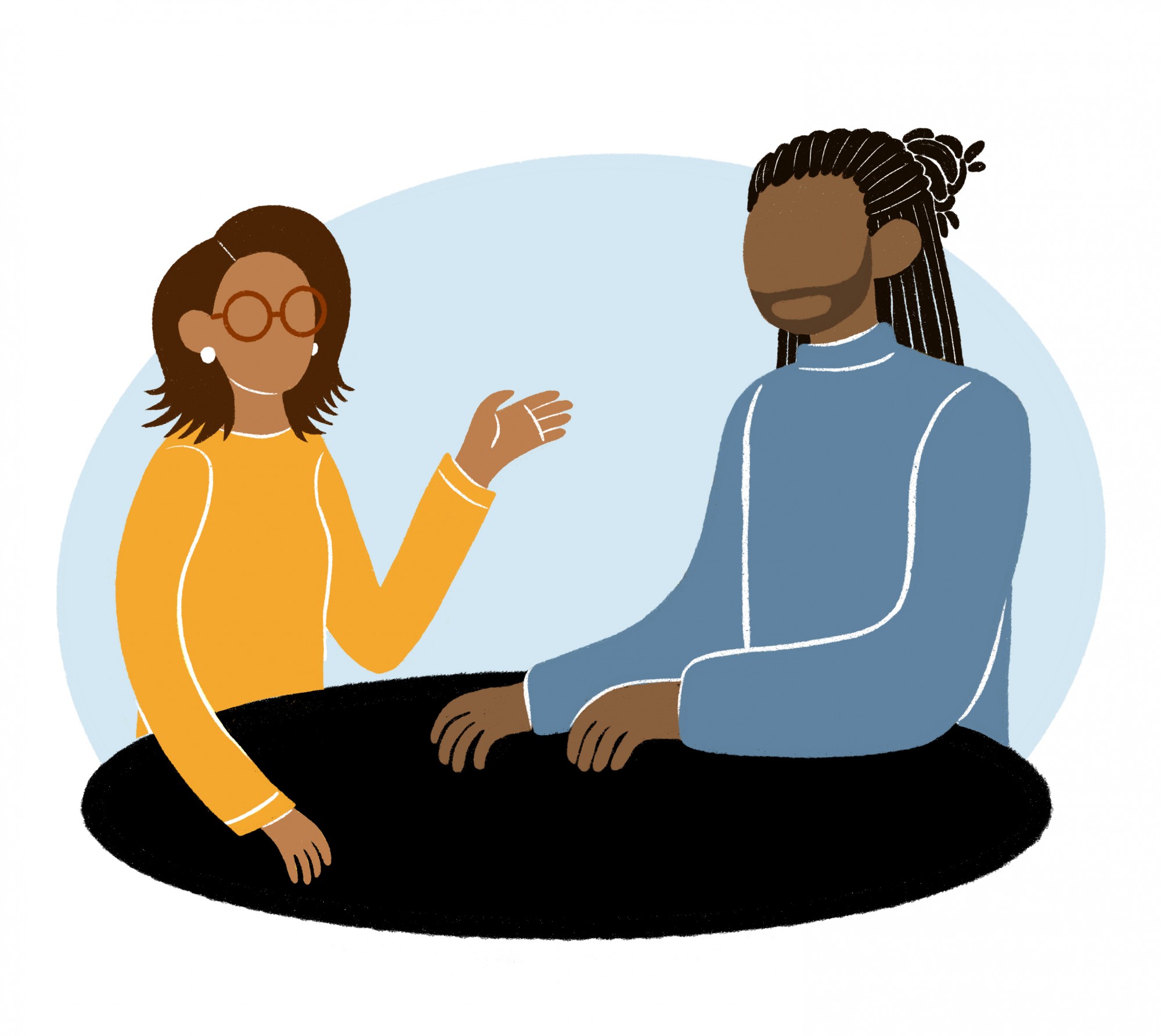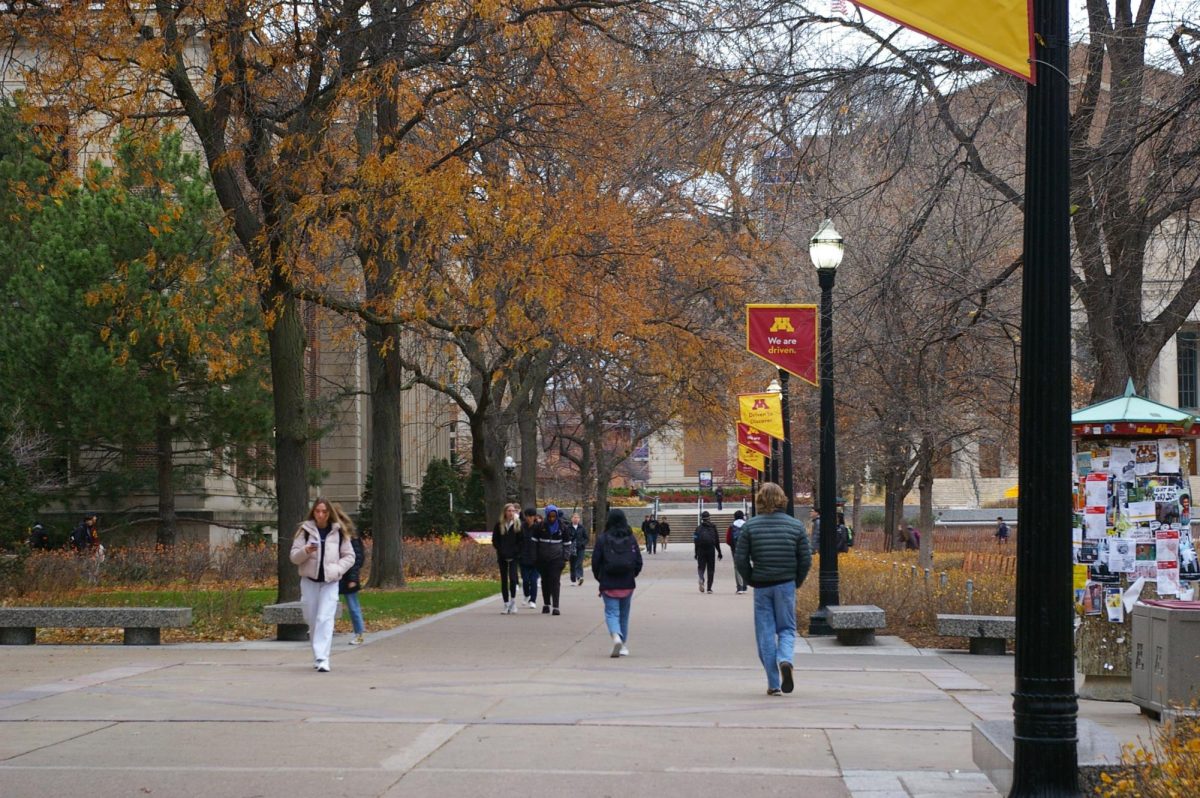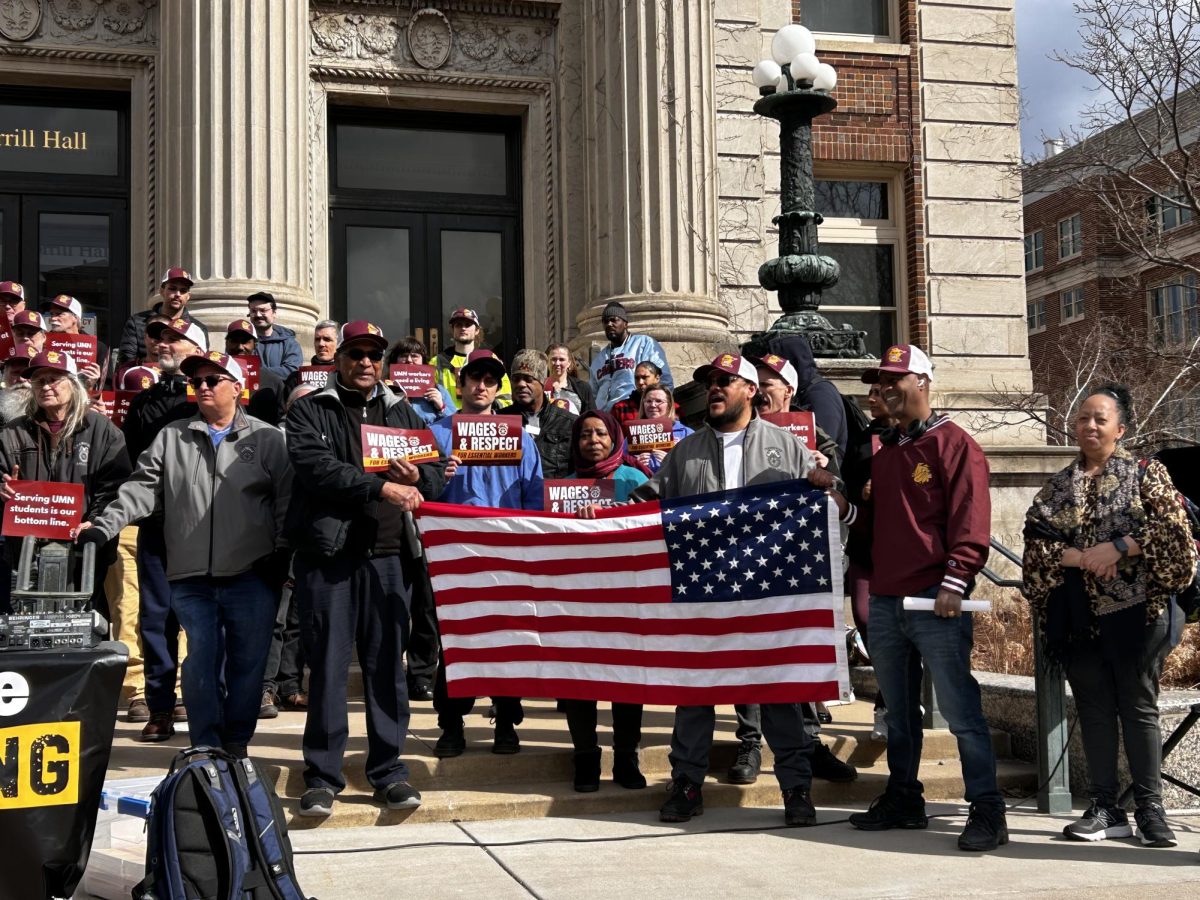“Black history is just so rich, and this country was built by Black people,” said Najmo Yusuf, a University of Minnesota graduate student. “We have everything to do with American history. Just knowing that history belongs to me makes me feel really proud.”
Yusuf serves as the Student Life Advisor in the Office for Multicultural Student Engagement (MCSE), which has played a major role in promoting and hosting events in celebration of Black History Month on the University campus.
“In our department, we are always thinking of Black history,” Yusuf said.
MCSE’s curated list of Black History Month events on campus includes a Power and Privilege Series hosted by Nicole Cardoza, an exhibition featuring the artwork of alumni Mark Khan and two events hosted by the Black Student Union (BSU).
Along with BSU’s annual Unity Dinner and Cultural Showcase, BSU will host social events such as a showing of “Think Like a Man” and a yoga day at the Recreation and Wellness Center.
Zakaria Jamari, a third-year student majoring in psychology, serves as a co-cultural awareness chair on the BSU Board.
“Our main theme of Black History Month is Black excellence,” said Jamari. “Each week will have different sectors of Black excellence.”
The first week will be centered around “Black mediocrity,” the practice of honoring Black people’s value irrespective of their accomplishments. One Huffington Post writer explained the concept, saying, “When I refer to mediocrity it’s the assertion that we should all be allowed the liberty or privilege of simply existing.”
“I feel like Black students put a lot of pressure on themselves, especially college students,” Jamari said. “To be perfect, have the perfect GPA, have all these jobs and internships.”
The BSU has partnered with The Zen Bin, a local business that will lead students in holistic yoga and breathing exercises at an upcoming BSU event for students to “have a chill night… just talking about wellness and the importance of it,” Jamari said.
The continuity of Black history
Reflecting on Black History Month, second-year BFA student Taylor Barnes said, “[It] has always just been a given and celebration in our household … There’s no way for me or anybody in my family to forget that we are Black, and for us Black History Month is every day of the year.”
Barnes said she identifies as an American descendent of slavery.
“My grandmother was a sharecropper, which is like slavery junior, and my grandfather on my mom’s side went to school in Mississippi in the 1960s when they were forced integrated. So a lot of that stuff that is a part of Black history is actually not that far away.”
Yusuf echoed similar sentiments, saying, “In a lot of ways, George Floyd’s murder amplified our history, and in some ways, it’s brought light to the fact that we’re not far removed from what’s happened 400 years ago… You can’t make change for the future without understanding your past.”
She said she hopes for the University to hire and promote more Black people and to devote more resources to the African American Studies Department.
“George Floyd’s murder amplified the need to accelerate our efforts to support Black University community members,” said Michael Goh, the University’s vice president of equity and diversity, in an email.
He provided a non-exhaustive list of notable racial justice efforts that have been undertaken by the University since George Floyd’s murder.
The efforts included implementing the Gopher Equity Project, requiring all undergraduate students on the Twin Cities campus to fulfill a Race, Power, and Justice theme, and reviewing all University administrative policies with an equity lens.
Soon after George Floyd’s murder, the University announced it would no longer utilize the Minneapolis Police Department for large events on campus or for specialized services like K-9 explosive detection units.
Some students, including Minnesota Student Association (MSA) Vice President Samiat Ajibola, have expressed a desire to see the University further minimize police presence on campus in order to protect Black students from police brutality.
MSA has worked with students on campus to explore alternative methods of public safety. These conversations have become increasingly relevant in the wake of Amir Locke’s death at the hands of the Minneapolis Police Department.
In a recent statement addressed to the University community, BSU wrote “The countless lies and misinformation delivered by the Minneapolis Police Department and Mayor is evidence of their racism and their unwillingness to change.”
BSU also hosted a discussion entitled “Police Brutality in the Black Community” to provide “a safe space to express the anger and sorrow that we are all deeply feeling at this moment,” according to a BSU Instagram post.
“I think that we are a resilient race of people,” Barnes said, concluding on a positive note in reflection of Black history.



















